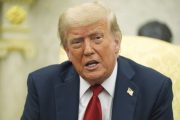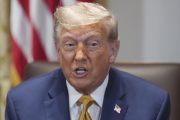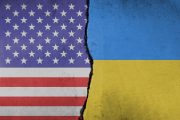In a letter to Congress, President Barack Obama said that the troops will assist local forces in a long-running battle against the Lord's Resistance Army, considered one of Africa's most ruthless rebel groups, and help to hunt down its notorious leader, Joseph Kony. The first of the troops arrived in Uganda on Wednesday, the White House said, and others will be sent to South Sudan, the Central African Republic, and the Democratic Republic of the Congo. Despite Obama’s claims of “limited intervention,” this latest American meddling in the affairs of another nation represents yet another example of the administration’s unconstitutional, internationalist adherence to the principles of “humanitarian intervention,” also known as the doctrine of “Responsibility to Protect” (RTP), the same theoretical basis for Obama’s intervention in Libya and former President Bill Clinton’s intervention in Kosovo.
A Brief History of the Ugandan Conflict
When Uganda was declared an independent nation in 1962, as with other postcolonial nations, historical interethnic hostilities were not taken into account by Britain; the northern Acholi tribe was assimilated into Uganda — the country's name coming from the southern Ganda tribe — laying the roots for future conflict, as with the Hutus and Tutsis in Rwanda. The Lord’s Resistance Army began life in the early 1980s as the Holy Spirit Movement, led by a woman called Alice Lakwena who claimed the Holy Spirit had ordered her to overthrow the Ugandan government, which was accused of treating the Acholi people of the North unfairly. As resentment towards the Ugandan government intensified, supporters flocked to Lakwena and the Holy Spirit movement gathered momentum, until a battle won by the government led to Lakwena’s exile.
In 1986, President Tito Okello, an Acholi, was removed by the National Resistance Army (NRA), and fearing a full-blown assault and the loss of their traditional military hegemony, the Acholi launched an insurgency against the NRA. In January 1987, Joseph Kony, the current head of the Lord’s Resistance Army (LRA), claimed to receive divine revelations and emerged as the head of an armed, guerrilla movement against the NRA. Kony initially stated that the LRA’s mission was to overthrow the government and rule Uganda based on the 10 Commandments (although it must be noted that the LRA is not a Christian movement; it espouses a theology that combines Pentecostalism with traditional Acholi animism and other African pagan vernacular practices, and is engaged in human rights atrocities that defy biblical ethics).
In 1991, the Ugandan government began efforts to extirpate the guerrillas, known as Operation North, including by recruiting Acholi to fight the LRA, resulting in Kony becoming distrustful of his own people. After Operation North failed (the LRA had modern weaponry at its disposal, while the government forces only had bows and arrows), Kony had asked for amnesty for his troops, and began negotiating with the Sudanese government for support. Various meetings with the government and periods of amnesty for the LRA failed over a three-year period, and by 1994, the conflict had assumed an international identity.
After the LRA was given an ultimatum to disband in February 1994, it began establishing a military presence in Southern Sudan. Kony became convinced that the Acholi were open collaborators with the Ugandan government, resulting in the LRA launching a campaign of brutality against civilians. Mutilations are common, including cutting off lips, noses, and limbs; and mass abductions of youth and children are common. Boys are kidnapped and used as child soldiers (human-rights activists call this the “Invisible Children” phenomenon), and most LRA soldiers today are abducted children (similar to the terrorist group Hamas‘ use of child suicide bombers), a tactic which deters the government from cracking down on the LRA (a military offensive against the LRA is perceived by the Acholi as an attack against innocent children, resulting in a moral ambiguity, as children are both victims and perpetrators). The LRA pillages villages, rape is common, and those who resist kidnapping are killed on the spot.
To be fair, both sides are said to commit atrocities, and Acholi who have been forcefully moved to camps by the government have died with great frequency from malnutrition and disease. Thousands of civilians have been displaced by the conflict, and even within government-protected camps, LRA attacks have been rampant. In March 2002, the Uganda People’s Defense Force began an offensive against the LRA (“Operation Iron Fist”), and in response, LRA troops began crossing the border into the Democratic Republic of the Congo (DRC) for the first time, resulting in a diplomatic row between the governments of the DRC and Uganda, with both militaries making a show of force along their border, while the Congolese ambassador to the United Nations sent a letter to the UN Secretary-General demanding that an economic embargo be placed on Uganda in retaliation.
Numerous attempts to reach a peace agreement were made between the LRA and the Ugandan government, but Kony withdrew each time. The Ugandan People’s Defense Force (UPDF) — i.e. the Ugandan army — continues its pursuit of the rebels and claims that they have substantially weakened the LRA, but the ongoing attacks suggest otherwise.
The Folly of American Intervention
Obama’s efforts to intervene in the conflict (in which there are absolutely no American interests at stake) date back to 2009, when Congress passed the Lord’s Resistance Army Disarmament and Northern Uganda Recovery Act. This made it U.S. policy to kill or capture Kony and end the rebellion, and the bill called for funding for humanitarian efforts to block the LRA in Uganda and promote Ugandan economic and infrastructure development. This is clearly unconstitutional, and represents the influence of the international human rights lobby in the Obama administration, which advocates humanitarian intervention, otherwise known as Responsibility to Protect (RTP), a doctrine advocated by czar Samantha Power. In June, the Pentagon moved to send nearly $45 million in military equipment to Uganda and Burundi. The aid included four small drones, body armor, and night-vision and communications gear; and is being used in the fight against al-Shabaab, an al-Qaeda-linked group that U.S. officials see as an increasing threat and that African peace-keeping troops in Somalia have been battling to suppress.
As with American intervention in Libya, the “humanitarian” intervention in Uganda has the backing of the secretive International Crisis Group, which instigated anti-Gadhafi efforts in Libya and counts leading anti-Mubarak Egyptian politician Mohammed ElBaradei and George Soros among its members. The Uganda deployment represents a continued effort by Obama to use military force for humanitarian protection in areas where atrocities are occurring and a continuation of the Libya policy, which represents the meddling in foreign affairs that the Founding Fathers warned us against.
There is nothing humanitarian about “humanitarian intervention,” and if history is the best predictor for the future, then it can be expected that American troops will be engaged in a fifth war with no quick end in sight. American and Ugandan blood will be unnecessarily shed, our defense capabilities will be compromised, and as the deficit spirals out of control, the defense budget will continue to swell at an unsustainable rate.




